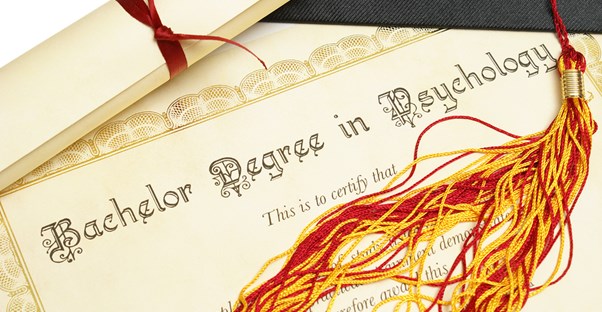Elon Musk’s companies, Tesla and SpaceX, have made strides in clean energy and space exploration, but not without significant federal backing. Billions in government loans, subsidies, and contracts have fueled his ventures. However, Musk’s erratic behavior and controversial statements have often hurt his companies. While his innovations are bold, his actions often risk eclipsing his achievements, making his legacy a mix of ambition and self-sabotage.
15 Modern-Day People Students Will Learn About in History Class

History is constantly evolving, and the people shaping our present will undoubtedly fill the textbooks of tomorrow. From politicians to activists, innovators to cultural icons, these individuals are making an indelible mark on the world. Their influence extends across politics, technology, activism, and the arts, and their stories will serve as powerful lessons for future generations. Here are 15 modern figures who will inspire and challenge students in history classes yet to come.
1. Donald Trump
The 45th President of the United States transformed the political landscape with his unconventional approach to governance and communication, heavily relying on social media. His policies on trade, immigration, and taxation, along with his role in the Capitol riot controversy, make him a polarizing figure. Future generations will study his presidency as a defining chapter in modern American politics.
2. Taylor Swift
Taylor Swift is more than a record-breaking singer-songwriter; she’s a cultural force. Through her music, activism, and business acumen, she’s reshaped the entertainment industry. Whether re-recording her albums to reclaim ownership or using her platform to advocate for gender equality and voter participation, Taylor Swift’s influence extends far beyond the stage. Students will analyze her as a pioneer in self-empowerment and artistry.
3. Elon Musk
4. Greta Thunberg
At just 16 years old, Greta Thunberg galvanized a global climate movement. Her blunt, impassioned speeches, including those at the United Nations, have drawn attention to the urgent need to address climate change. Greta represents the power of youth activism, inspiring a generation to demand environmental justice.
5. Barack Obama
By becoming the first African American President of the United States, Barack Obama’s election marked a major milestone in American history. His Affordable Care Act, focus on diplomacy, and speeches like his eulogy at the Charleston church shooting remain influential. His presidency embodies hope, progress, and the ongoing challenges of unity in diversity.
6. Malala Yousafzai
Malala Yousafzai’s remarkable life story, from surviving a Taliban attack to becoming a global advocate for girls’ education, is destined for the history books. Awarded the Nobel Peace Prize at just 17, she continues to push for education reform worldwide, making her a symbol of courage and change.
7. Jeff Bezos
Jeff Bezos revolutionized global commerce as the founder of Amazon, transforming the way people shop and interact with technology. His ventures, including Blue Origin, reflect his aspirations in space exploration. Bezos’ impact will serve as a study of technological innovation and its social consequences.
8. Kamala Harris
When Kamala Harris was sworn in as the Vice President of the United States, she made history as the first woman, and the first Black and South Asian person, to hold the position. Her rise symbolizes breaking barriers and will serve as a critical example of diversity in government.
9. Angela Merkel
Angela Merkel’s 16 years as Germany’s Chancellor showed how calm, pragmatic leadership could guide a nation through crises. From navigating the Eurozone crisis to welcoming refugees, her tenure embodies resilience, diplomacy, and steady governance in turbulent times.
10. Xi Jinping
Under Xi Jinping’s leadership, China solidified its position as a global superpower. His policies, such as the Belt and Road Initiative, and his grip on power with the elimination of presidential term limits, have drawn global attention. Future classes will study his role in shaping 21st-century geopolitics.
11. Mark Zuckerberg
Mark Zuckerberg’s creation of Facebook (now Meta) has redefined how humans connect and share information. However, the platform’s entanglement with privacy concerns, misinformation, and social division ensures that his legacy will be assessed as both innovative and controversial.
12. Beyoncé Knowles-Carter
Through her trailblazing career, Beyoncé has become a cultural and political voice for empowerment. Albums like Lemonade tackled themes of race, feminism, and resilience. Beyoncé’s influence on music, culture, and social change makes her a symbol of modern artistry students will analyze for decades.
13. Pope Francis
Pope Francis has modernized the Catholic Church with his focus on inclusivity, climate change, and social justice. By addressing critical worldwide issues, he has brought the Church into contemporary debates, making his papacy a pivotal point in religious history.
14. Vladimir Putin
Few leaders have wielded power as consequentially as Vladimir Putin. From annexing Crimea to his involvement in Syria and the ongoing war in Ukraine, his governance is central to discussions of global power struggles, authoritarianism, and their implications.
15. Serena Williams
Serena Williams redefined tennis and proved that athleticism and advocacy go hand in hand. With 23 Grand Slam titles, and her work promoting diversity and fair pay in sports, her impact extends beyond the court. Serena epitomizes excellence, resilience, and empowerment.



